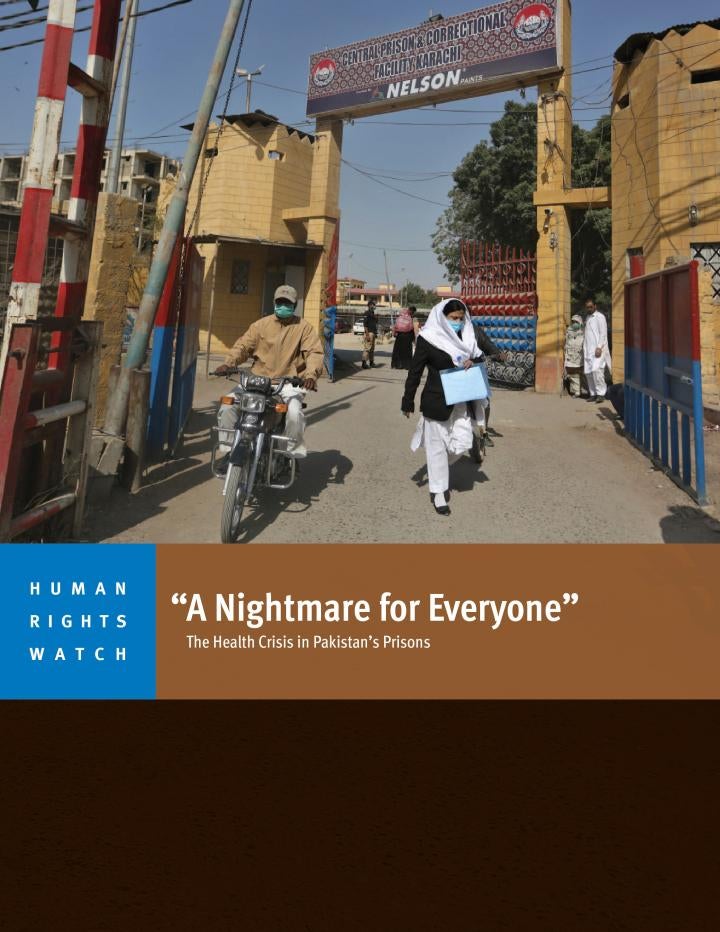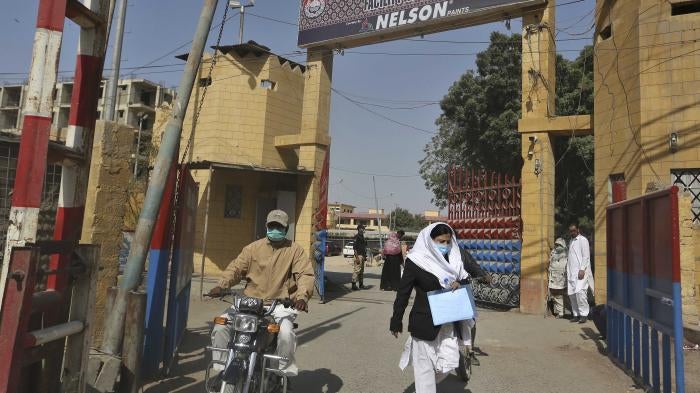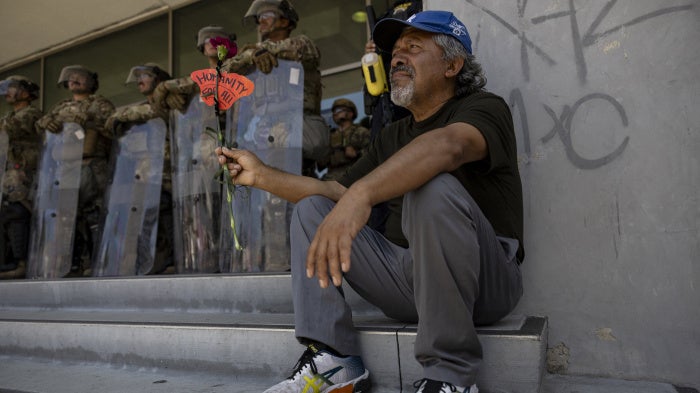Year
Tags
'Remain in Mexico' #MeToo Beijing Winter Olympics 2022 Azerbaijan Natural Resources and Human Rights Boko Haram Daily Brief Brexit German Election Kashmir Global Supply Chains Chechnya China's Global Influence Climate Talks 2017 Tigray Conflict COP27 - Climate Change Conference COP28 - Climate Change Conference COP29 - Climate Change Conference COP30 - Climate Change Conference World Cup 2018 FIFA World Cup Qatar 2022 Coronavirus Crimes Against Humanity Treaty Europe: Refugees & Migrants’ Rights Encryption Disappearances in Yemen Drugs and Human Rights Right to Social Security Land Rights Duterte Education for Syrian Refugee Children US: Trump Presidential Transition Egypt Crackdown on Civil Society ISIS Ethiopian Protests Ferguson Free Education for all Children Gender-based Violence at Work Russia-Ukraine War Guinea's 2009 Stadium Massacre Trial Nagorno-Karabakh Hissène Habré Hong Kong Honor Killings Iraq War 20 Years Later kafala system Philippines’ ‘War on Drugs’ The Trump Administration and Human Rights Rohingya Liu Xiaobo Los Angeles Film Club Mass Surveillance in China Mediterranean Crisis Mexico: Lessons from a Human Rights Catastrophe Middle East Uprising Uyghurs Rabaa Massacre World Report 2024 News Releases World Report 2025 News Releases World Report 2026 News Releases Refugee Summits Reparations in the United States Rights of Persons with Albinism The Trial of Hissène Habré Uganda Elections 2016 World Humanitarian Summit Xenophobia Yahya Jammeh
Country
Africa -African Union -Angola -Benin -Botswana -Burkina Faso -Burundi -Cameroon -Cape Verde -Central African Republic -Chad -Comoros -Congo (Brazzaville) -Côte d'Ivoire -Democratic Republic of Congo -Djibouti -Equatorial Guinea -Eritrea -Eswatini (formerly Swaziland) -Ethiopia -Gabon -Gambia -Ghana -Guinea -Guinea-Bissau -Kenya -Lesotho -Liberia -Madagascar -Malawi -Mali -Mauritius -Mozambique -Namibia -Niger -Nigeria -Rwanda -Senegal -Seychelles -Sierra Leone -Somalia -South Africa -South Sudan -Sudan -Tanzania -Togo -Uganda -Zambia -Zimbabwe Americas -Antigua and Barbuda -Argentina -Bahamas -Barbados -Belize -Bolivia -Brazil -Canada -Chile -Colombia -Costa Rica -Cuba -Dominican Republic -Ecuador -El Salvador -Falklands/Malvinas -Grenada -Guatemala -Guyana -Haiti -Honduras -Jamaica -Mexico -Nicaragua -Panama -Paraguay -Peru -Saint Kitts and Nevis -Saint Lucia -Saint Vincent and the Grenadines -Suriname -Trinidad and Tobago -Uruguay -Venezuela Asia -Afghanistan -Australia -Bangladesh -Bhutan -Brunei -Cambodia -China and Tibet -Cook Islands -Federated States of Micronesia -Fiji -India -Indonesia -Japan -Kiribati -Laos -Malaysia -Maldives -Marshall Islands -Mongolia -Myanmar (Burma) -Nauru -Nepal -New Zealand -Niue -North Korea -Pakistan -Palau -Papua New Guinea -Philippines -Samoa -Singapore -Solomon Islands -South Korea -Sri Lanka -Taiwan -Thailand -Timor-Leste -Tonga -Tuvalu -Vanuatu -Vietnam Europe/Central Asia -Albania -Andorra -Armenia -Austria -Azerbaijan -Belarus -Belgium -Bosnia and Herzegovina -Bulgaria -Croatia -Cyprus -Czech Republic -Denmark -Estonia -European Union -Finland -France -Georgia -Germany -Greece -Holy See -Hungary -Iceland -Ireland -Italy -Kazakhstan -Kyrgyzstan -Latvia -Liechtenstein -Lithuania -Macedonia -Malta -Moldova -Monaco -Montenegro -Netherlands -Norway -Poland -Portugal -Romania -Russia -San Marino -Serbia/Kosovo -Slovak Republic -Slovenia -Spain -Sweden -Switzerland -Tajikistan -Türkiye -Turkmenistan -Ukraine -United Kingdom -Uzbekistan Global Middle East/North Africa -Algeria -Bahrain -Egypt -Iran -Iraq -Israel/Palestine -Jordan -Kuwait -Lebanon -Libya -Mauritania -Morocco/Western Sahara -Oman -Qatar -Saudi Arabia -Syria -Tunisia -United Arab Emirates -Yemen United States -Criminal Justice -Immigrants’ Rights and Border Policy -National Security -US Foreign Policy -Democracy -Economic Justice -Racial Justice
Topic
Arms -Cluster Munitions -Killer Robots -Landmines -Explosive Weapons in Populated Areas -Incendiary Weapons Children's Rights -Education -Attacks on Education -Children Separated from Families -Children and Armed Conflict -Child Labor -Youth Justice -Migrant and Refugee Children -Intersex Children Crisis and Conflict Disability Rights -Shackling Economic Justice and Rights -Corporate Accountability -Oil, Mining, and Natural Resources -Poverty and Inequality -World Bank, IMF Environment and Human Rights -Climate Change -Deforestation -Fossil Fuels Free Speech -Press Freedom -Religious Freedom Health -Sexual and Reproductive Health -Detention Centers -Disasters and Displaced Populations -Environment and Health -Health Care Access -HIV/AIDS and Tuberculosis -Palliative Care -Attacks on Health LGBT Rights Refugees and Migrants -Asylum Seekers -Internally Displaced People -Exploitation, Forced Labor & Trafficking -Migrants Rights of Older People International Justice -Charles Taylor -International Criminal Court -Joseph Kony - Lord's Resistance Army -Peace and Justice -Bosco Ntaganda -Universal Jurisdiction Technology and Rights -Digital Investigations Lab Terrorism / Counterterrorism -CIA Activities -Detention without Trial -Edward Snowden -Guantanamo -Guantanamo - Military Commissions -Targeted Killings and Drones Torture United Nations -Human Rights Council Women's Rights -Forced Marriage -Gender Based Violence -Domestic Workers -Gender Equality -Reproductive Rights -Sexual Violence -Labor Rights -Sex Work -Women and Armed Conflict -Women’s Health


